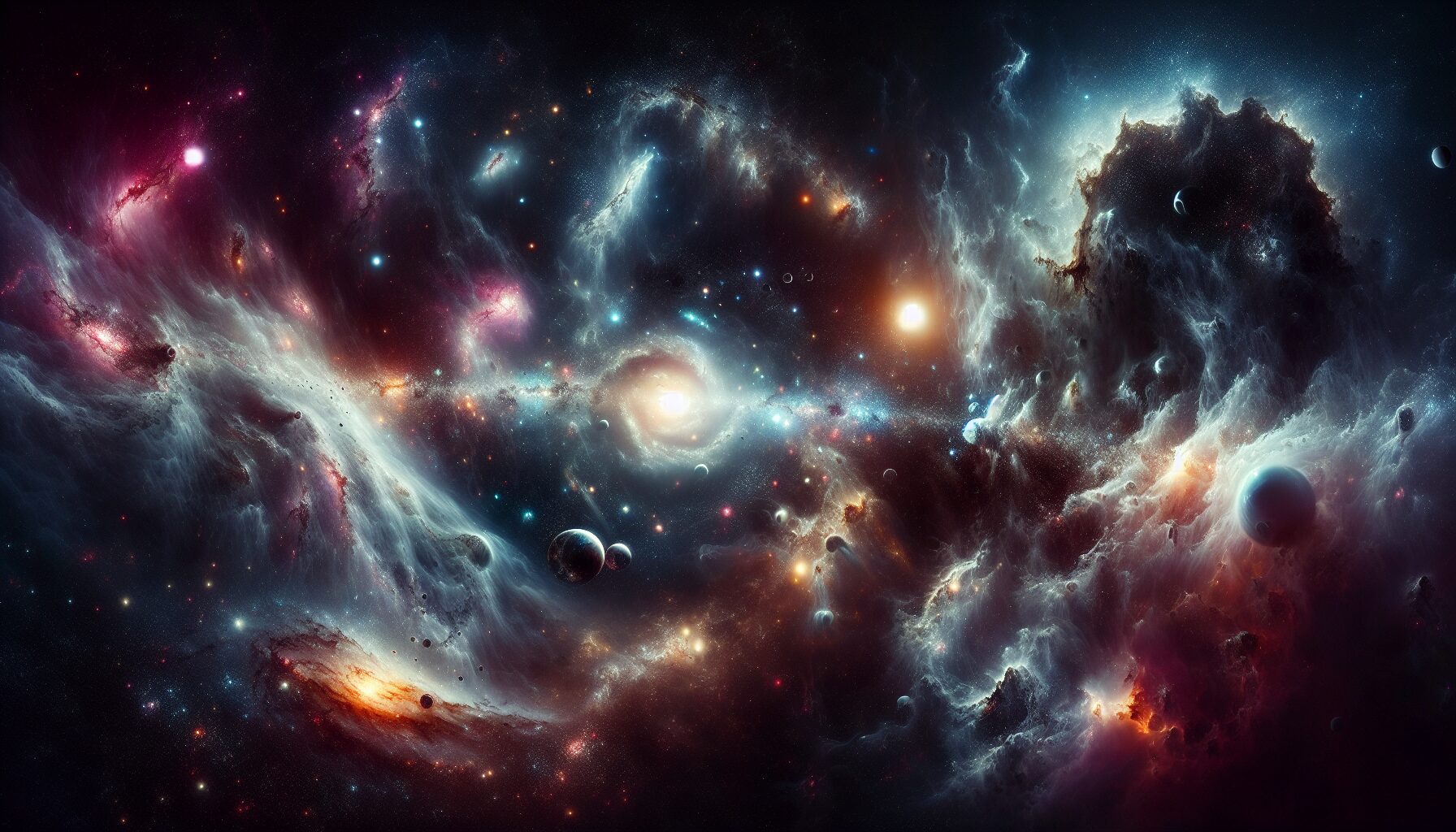The cosmos, vast and mysterious, continues to baffle scientists with its secrets. Among these mysteries, dark energy occupies a significant position, posing questions about the fate of the universe. Is our universe destined for eternal expansion, or could it eventually face dissolution? This article delves into the enigma of dark energy, exploring its implications and the ongoing debate in the scientific community.
Understanding Dark Energy
Dark energy is a theoretical form of energy that is proposed to permeate all of space, driving the universe’s accelerated expansion. Since its postulation in the late 20th century, it has inspired both fascination and controversy due to its elusive nature.
“Dark energy is perhaps the most profound mystery in modern cosmology. It’s the thing causing our universe to go puff,” explains Paul Sutter, an astrophysicist.
The Discovery of Cosmic Acceleration
The concept of dark energy arose from observations made in the late 1990s when two independent teams — the Supernova Cosmology Project and the High-Z Supernova Search Team — discovered that distant supernovae were dimmer than expected. This observation suggested that the universe’s expansion was not slowing down under the force of gravity, as previously thought, but accelerating.
This groundbreaking discovery won the 2011 Nobel Prize in Physics for its implications: a mysterious force, now termed dark energy, was counteracting gravitational attraction.
Dark Energy in the Universe
Current cosmological models suggest that dark energy constitutes about 68% of the universe, playing a crucial role in its large-scale structure and fate. The remaining universe comprises dark matter (27%) and ordinary matter (5%).
Theories About Dark Energy
- Cosmological Constant: Proposed by Albert Einstein, the cosmological constant (Λ) represents a uniform energy density filling space. This notion aligns with the idea of vacuum energy, a property of empty space that could drive cosmic acceleration.
- Quintessence: Unlike the static cosmological constant, quintessence suggests dynamic dark energy varying over time and space. This scalar field theory requires meticulous fine-tuning to match observations.
- Modified Gravity Theories: Some scientists propose that modifications to General Relativity, such as f(R) gravity or brane-world scenarios, could account for observed cosmic acceleration without invoking dark energy.
The Ultimate Fate of the Universe
Theories about dark energy’s impact on the universe lead to diverse and speculative predictions regarding its ultimate fate:
- Heat Death: If dark energy remains constant or increases, the universe may continue to expand indefinitely. Over time, galaxies, stars, and matter would spread out so far that the universe would approach a state of maximum entropy — a “heat death” where it becomes cold and dark.
- Big Rip: Proposed by physicist Robert Caldwell, the “Big Rip” theory hypothesizes a scenario where dark energy’s repulsive force becomes so strong that it tears apart galaxies, solar systems, and eventually atomic structures, leading to a singular end.
- Big Crunch or Big Bounce: If dark energy were to decrease over time, gravitational forces might eventually reverse the universe’s expansion, leading to a “Big Crunch.” Some models extend this idea into a “Big Bounce,” suggesting a cyclical pattern of expansion and contraction.
Challenges and Future Observations
Despite advances in astrophysics, understanding dark energy remains a monumental challenge. To probe deeper into this enigma, scientists rely on advanced observational techniques and instruments:
- Dark Energy Survey (DES): Using a 570-megapixel camera, DES maps galaxies to study cosmic acceleration, aiming to uncover more about dark energy’s properties.
- Euclid Mission: Led by the European Space Agency, the Euclid space telescope aims to map the geometry of the dark universe, observing billions of galaxies to improve our understanding of dark energy.
- Vera C. Rubin Observatory: Scheduled to be operational soon, this observatory will provide a wide-field survey of the universe, offering more data to decode the mystery of dark energy.
Philosophical and Theoretical Implications
The mystery of dark energy extends beyond scientific inquiry, inviting philosophical contemplation. What does a universe dominated by dark energy imply about our existence and the nature of reality? The implications challenge our understanding of cosmology, posing fundamental questions about the nature of the universe and our place within it.
Philosopher David Champeaux muses, “Understanding dark energy might one day influence our perception of space, time, and the universe itself” (ThoughtCo).
Conclusion
The enigma of dark energy presents both a challenge and an opportunity for the scientific community. As astrophysicists continue to unveil this perplexing component of the universe, each discovery brings us closer to understanding the cosmos. Whether expansion leads to dissolution or another unforeseen outcome, dark energy remains pivotal in shaping the universe’s future, urging humanity to delve ever deeper into the mysteries of existence.
For more on dark energy, see NASA’s research on dark energy.

Comments